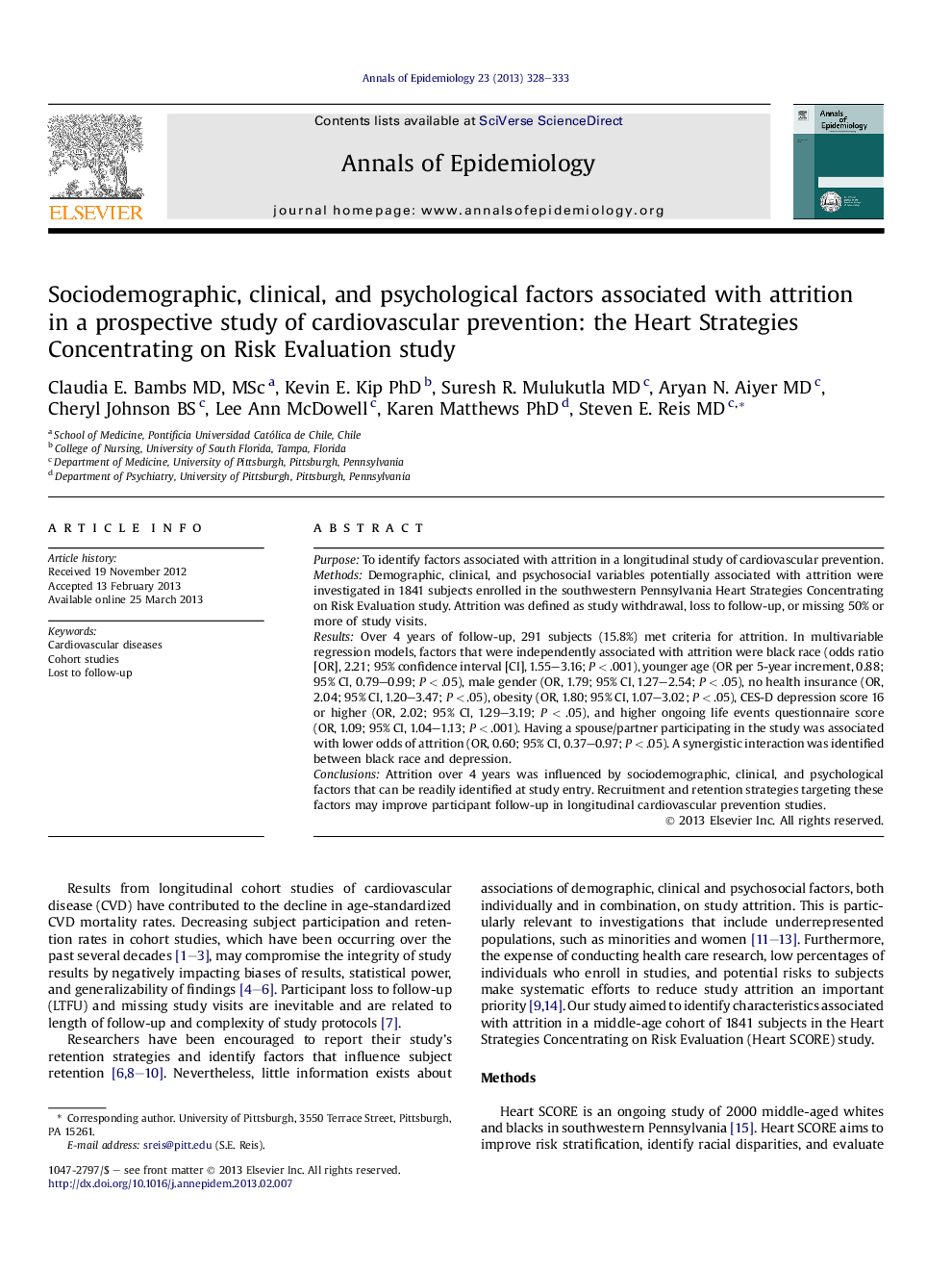| Article ID | Journal | Published Year | Pages | File Type |
|---|---|---|---|---|
| 3444208 | Annals of Epidemiology | 2013 | 6 Pages |
PurposeTo identify factors associated with attrition in a longitudinal study of cardiovascular prevention.MethodsDemographic, clinical, and psychosocial variables potentially associated with attrition were investigated in 1841 subjects enrolled in the southwestern Pennsylvania Heart Strategies Concentrating on Risk Evaluation study. Attrition was defined as study withdrawal, loss to follow-up, or missing 50% or more of study visits.ResultsOver 4 years of follow-up, 291 subjects (15.8%) met criteria for attrition. In multivariable regression models, factors that were independently associated with attrition were black race (odds ratio [OR], 2.21; 95% confidence interval [CI], 1.55–3.16; P < .001), younger age (OR per 5-year increment, 0.88; 95% CI, 0.79–0.99; P < .05), male gender (OR, 1.79; 95% CI, 1.27–2.54; P < .05), no health insurance (OR, 2.04; 95% CI, 1.20–3.47; P < .05), obesity (OR, 1.80; 95% CI, 1.07–3.02; P < .05), CES-D depression score 16 or higher (OR, 2.02; 95% CI, 1.29–3.19; P < .05), and higher ongoing life events questionnaire score (OR, 1.09; 95% CI, 1.04–1.13; P < .001). Having a spouse/partner participating in the study was associated with lower odds of attrition (OR, 0.60; 95% CI, 0.37–0.97; P < .05). A synergistic interaction was identified between black race and depression.ConclusionsAttrition over 4 years was influenced by sociodemographic, clinical, and psychological factors that can be readily identified at study entry. Recruitment and retention strategies targeting these factors may improve participant follow-up in longitudinal cardiovascular prevention studies.
